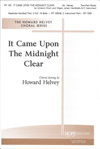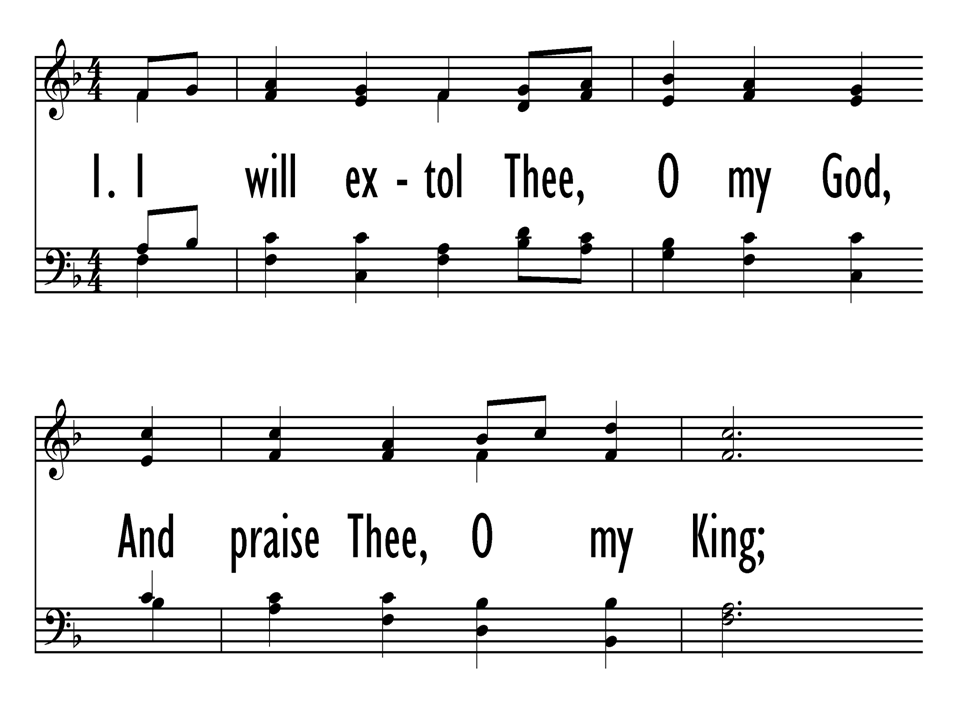- |
User Links
God Is Our Refuge and Our Strength
Hymn Information
- First Line
- God is our refuge and our strength
- Text Source
- <cite>Scottish Psalter</cite>, 1650, alt.
- Tune Name
- GERARD (NOEL)
- Adapter
- Arthur S. Sullivan (1874)
- Tune Source
- English
- Topic
- Biblical Names and Places: Jacob · Difficult Times · God As: Refuge/Safety/Shelter · War and Revolution
Copyright Information
- Text Copyright
- Public Domain
- Tune Copyright
- Public Domain
- Reprint/Projection Information
- Words and Music: The Words and Music are in the Public Domain; you do not need permission to project or reprint the Words and Music.
Full Text
Scripture References
Thematically related:
- st. 1 =
- st. 2 =
- st. 3 =
- st. 4 =
- st. 5 =
Further Reflections on Scripture References
This song in celebration of Zion's security (see also 48 and 76) has heartened God's people throughout the ages. Luther echoed it in "A Mighty Fortress Is Our God" (469). Traditionally ascribed to (or assigned to) the "sons of Korah," the psalm was no doubt composed for liturgical use at the temple. As a song concerning the royal city of the kingdom of God on earth, it expresses Israel's hope in the certain triumph of God's kingdom. The psalm's imagery of a river that "make[s] glad the city of God" (v. 4) serves as a metaphor for the unfailing flow of God's sustaining and refreshing blessings, which make the city of God like the Garden of Eden (Gen. 2: 10). In this psalm we confess fearless trust in God, "our refuge" (st. 1), and extol God's refreshing river and protective presence (st. 2). God stills the rage of the nations, inspiring us with faith's strong confidence (st. 3). The LORD's mighty victories assure us of the people's peace (st. 4), and God's reassuring word "Be still, and know. . ." inspires us again with the confidence of faith. (st. 5). The versification is based on the 1650 Scottish psalter version, which was altered in both the 1871 and 1912 American psalters and now again in the 1987 Psalter Hymnal. Hymns based on Psalm 46 are at 468, 469, and 610.
Psalter Hymnal Handbook
Confessions and Statements of Faith References
Further Reflections on Confessions and Statements of Faith References
Difficult times occur in the lives and communities of God’s people because this is a fallen world. The confessions demonstrate this perspective:
- Belgic Confession, Article 15 teaches that “…by the disobedience of Adam original sin has been spread through the whole human race…a corruption of the whole human nature...” As a result, God’s people are “guilty and subject to physical and spiritual death, having become wicked, perverse, and corrupt in all [our] ways” (Article 14). In addition, “The devils and evil spirits are so corrupt that they are enemies of God and of everything good. They lie in wait for the church and every member of it like thieves, with all their power, to destroy and spoil everything by their deceptions” (Article 12).
- Our World Belongs to God continues to affirm that “God has not abandoned the work of his hands,” nevertheless “our world, fallen into sin, has lost its first goodness...” (paragraph 4). And now “all spheres of life—family and friendship, work and worship school and state, play and art—bear the wounds of our rebellion” (paragraph 16).
Yet, in a fallen world, God’s providential care is the source of great assurance, comfort and strength. Through these thoughts, our trust in God is inspired.
- Belgic Confession, Article 13 is a reminder that God’s providence reassures us that God leads and governs all in this world “according to his holy will…nothing happens in this world without his orderly arrangement.” Further, this Confession identifies that this “gives us unspeakable comfort since it teaches us that nothing can happen to us by chance but only by the arrangement of our gracious heavenly Father, who watches over us with fatherly care...in this thought we rest.”
- Belgic Confession, Article 13, is a reminder that much is beyond human understanding and so “we do not wish to inquire with undue curiosity into what God does that surpasses human understanding and is beyond our ability to comprehend.”
- In Heidelberg Catechism, Lord’s Day 9, Question and Answer 26 we testify that we “trust God so much that [we] do not doubt that he will provide whatever [we] need for body and soul and will turn to [our] good whatever adversity he sends upon [us] in this sad world.”
- In Heidelberg Catechism, Lord’s Day 10, Question and Answer 28, we are assured that through our trust in the providence of God we can have “good confidence in our faithful God and Father that nothing in creation will separate us from his love.”
- When we pray the Lord’s Prayer we ask not to be brought into the time of trial but rescued from evil. In doing so we ask that the Lord will “uphold us and make us strong with the strength of your Holy Spirit so that we may not go down to defeat in this spiritual struggle...” (Heidelberg Catechism, Lord’s Day 52, Question and Answer 127)
Belgic Confession, Article 26 speaks about the intercession of Christ as the ascended Lord. “We have no access to God except through the one and only Mediator and Intercessor, Jesus Christ the Righteous.” We, therefore, do not offer our prayers as though saints could be our intercessor, nor do we offer them on the “basis of our own dignity but only on the basis of the excellence and dignity of Jesus Christ, whose righteousness is ours by faith.” Because Jesus Christ is our sympathetic High Priest, we approach the throne “in full assurance of faith.”
No greater assurance can be found than that expressed in Heidelberg Catechism, Lord’s Day 1, Question and Answer 1: “I am not my own by I belong—body and soul, in life and in death—to my faithful Savior, Jesus Christ.”
In all difficult times, we eagerly await the final day when God “will set all things right, judge evil, and condemn the wicked” (Our World Belongs to God, paragraph 57).
God Is Our Refuge and Our Strength
Additional Prayers
God Is Our Refuge and Our Strength
Tune Information
- Name
- GERARD (NOEL)
- Key
- F Major
- Meter
- 8.6.8.6 D


 My Starred Hymns
My Starred Hymns






